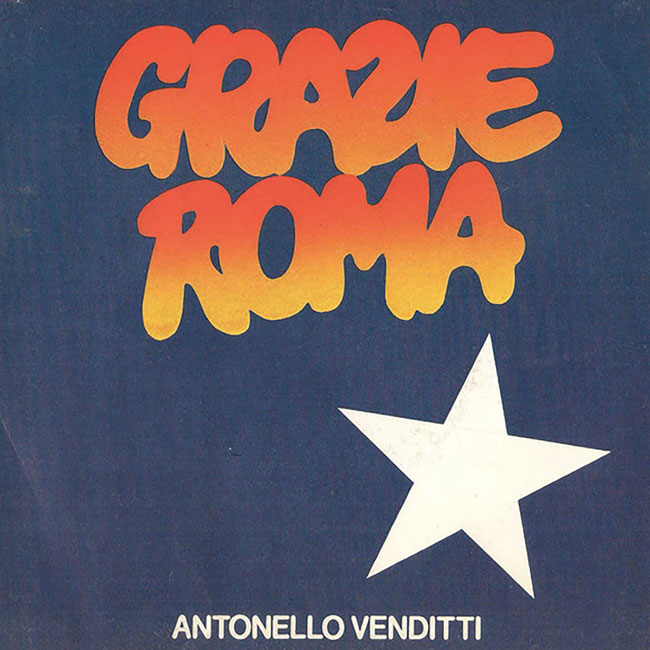Grazie Roma

The first to set foot in the new house was the dear old Anelli piano that I’d composed Sora Rosa on, with the cigarette burn marks on the end keys because I always play everything in a central position. Afterwards I went in, taking the first step out of the quagmire. I looked at the city rooftops, the ones I dreamed of at night in Stukas, the same ones that had inspired La sera dei miracoli by Dalla. I touched the keys with my fingertips and Grazie Roma came out.
I was suddenly struck by the feeling that something wonderful was happening to me and I discovered that we can cry with joy. Finally, I had a song where I wasn’t making fun of myself. I hadn’t paid attention to the lyrics, or how to express my anguish, but had just gone with it, and the words, true words, came out on their own. It’s still wonderful to sing it today. The thing that ruins everything in the music is the tempo, the denial of human freedom: if I could choose, I’d play it very slowly.
Grazie Roma was born out of gratitude towards the city and my team, given that the two are inseparable. I composed it in November of 1982, and recorded it on March 8, 1983. I had faith. I felt that the Roma team would win the Scudetto, otherwise something like that would never have happened to me.
The concert at the Circus Maximus, the heavenly day of May 15, 1983, marked the end of the nightmare. It was the explosion of a galaxy of love, a particle of cosmic emotion that only football and music can generate together. I, who have always been a soloist, was overwhelmed by the power of the feeling of sharing. Since then my life has changed. I opened up. My face is always exposed to the sun. I still carry with me that gilded rose of the Circus Maximus. It keeps me going. It forbids me to become dark even over the most serious issues.
Excerpt from: Venditti, Antonello, L’importante è che tu sia infelice, Milan, Mondadori, 2009, pp. 92-93
